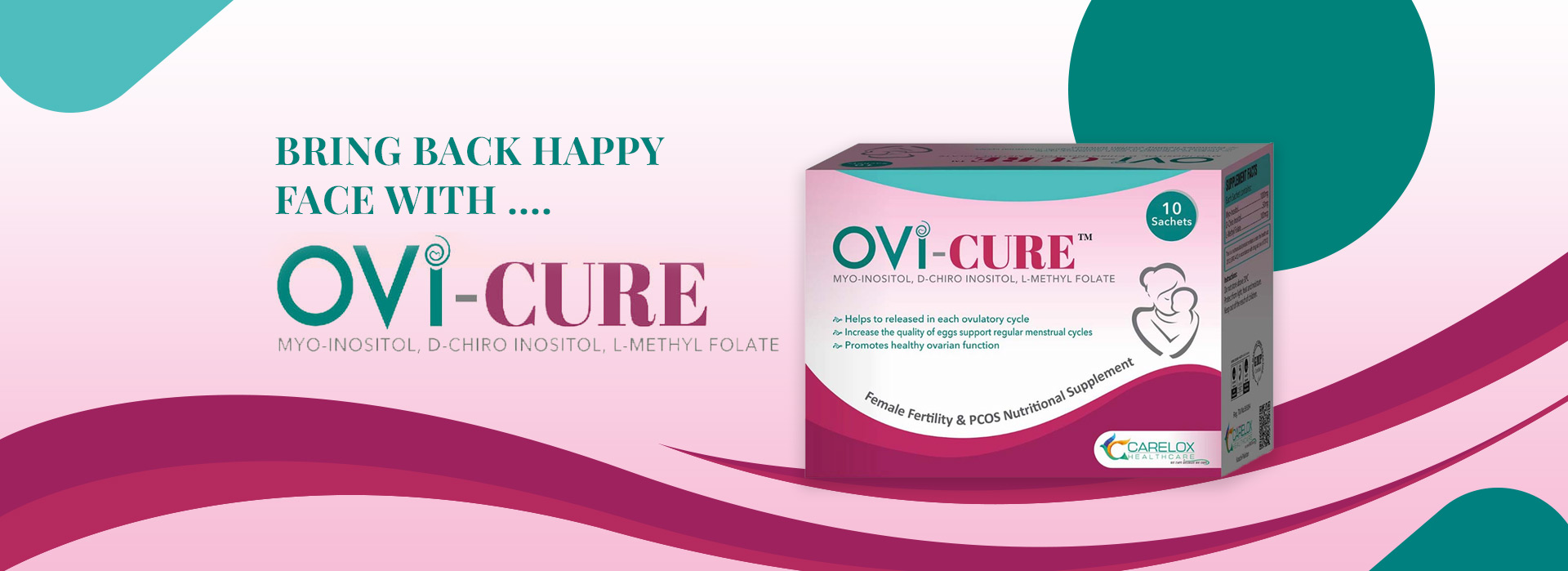




Polycystic ovary syndrome (PCOS) is a health problem that affects 1 in 10 women of childbearing age. Women with PCOS have a hormonal imbalance and metabolism problems that may affect their overall health and appearance. PCOS is also a common and treatable cause of infertility.
Some of the symptoms of PCOS include:
- Irregular menstrual cycle. Women with PCOS may miss periods or have fewer periods (fewer than eight in a year). Or, their periods may come every 21 days or more often. Some women with PCOS stop having menstrual periods.
- Too much hair on the face, chin, or parts of the body where men usually have hair. This is called “hirsutism.” Hirsutism affects up to 70% of women with PCOS.
- Acne on the face, chest, and upper back
- Thinning hair or hair loss on the scalp; male-pattern baldness
- Weight gain or difficulty losing weight
- Darkening of skin, particularly along neck creases, in the groin, and underneath breasts
- Skin tags, which are small excess flaps of skin in the armpits or neck area
The term ‘polycystic ovary syndrome’ (PCOS) describes a complex disorder with a range of symptoms. There is no single known cause and it is likely to be caused by a combination of genetic and environmental factors. It is characterised by chronic anovulation and excess ovarian activity, with the main feature being the presence of multiple underdeveloped tiny sacs (follicles) on the ovaries – often these underdeveloped follicles are unable to release an egg which means ovulation doesn’t take place.
In addition, a large proportion of women also have excessive androgen secretion or activity (hyperandrogenism) and abnormal insulin activity. Many body systems are affected in polycystic ovary syndrome resulting in several health complications which may include menstrual dysfunction, infertility, miscarriage, acne, oily skin, depression, obesity, hirsutism, hair loss, insulin resistance and increased risk of metabolic syndrome, cardiovascular disease, non-alcoholic fatty liver disease and chronic low grade inflammation.
Infertility means not being able to get pregnant after one year of trying (or six months if a woman is 35 or older). Women who can get pregnant but are unable to stay pregnant may also be infertile. About 10 percent of women (6.1 million) in the United States ages 15-44 have difficulty getting pregnant or staying pregnant, according to the Centers for Disease Control and Prevention (CDC).
Myo-inositol is one of nine different types of inositol. It is a naturally occurring substance produced in the human body from glucose, although it is not a sugar. Better described as a ‘vitamin-like’ substance, Myo-inositol is often considered to be a member of the B complex group of vitamins. However, because it is produced by the body in amounts considered sufficient to support health, it is not officially termed an essential nutrient. In addition to the body’s own production from glucose. In particular, Myo-inositol (MI) and D-chiro inositol (DCI) glycan’s administration has been reported to exert beneficial effects at metabolic, hormonal and ovarian levels.Myo-inositol is also found naturally in many foods such as organ meats, fruit, grains, nuts and beans.
A number of recent studies have found Myo-inositol & D-Chiro inositol to be an effective support in PCOS, in part due to its ability to improve insulin sensitivity, restore hormonal balance, improve menstrual regularity, reduce hyperandrogenism and influence ovarian function. Research has also demonstrated fertility-improving effects of Myo-inositol & D-Chiro Inositol among women with PCOS; and since the syndrome is the leading cause of female infertility, these results are particularly encouraging.
Folic acid is the man-made form of folate. Folate is a B-vitamin naturally found in some foods. It is needed to form healthy cells, especially red blood cells.
Folic acid supplements may come in different forms (such as L-Methyl folate). L-Methyl folate is a 3rd generation of folate. They are used to treat or prevent low folate levels. Low folate levels can lead to certain types of anemia. Conditions that can cause low folate levels include poor diet, pregnancy, alcoholism, liver disease, certain stomach/intestinal problems, kidney dialysis, among others. Women of childbearing age should receive adequate amounts of folate either through their diet or supplements to prevent infant spinal cord birth defects.
